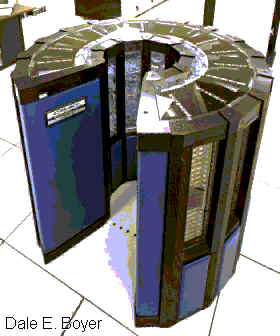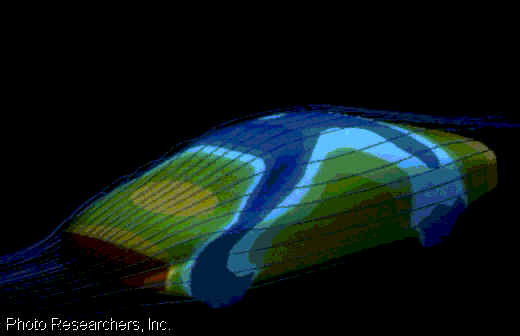|
|
|
Computers
Computers
| machine that performs tasks, such as mathematical calculations or electronic communication, under the control of a set of instructions called a program. Programs usually reside within the computer and are retrieved and processed by the computer's electronics, and the program results are stored or routed to output devices, such as video display monitors or printers. Computers are used to perform a wide variety of activities with reliability, accuracy, and speed |  |
Uses of Computers
People use computers in a wide variety of ways. In business, computers track inventories with bar codes and scanners, check the credit status of customers, and transfer funds electronically. In homes, tiny computers embedded in the electronic circuitry of most appliances control the indoor temperature, operate home security systems, tell the time, and turn videocassette recorders on and off. Computers in automobiles regulate the flow of fuel, thereby increasing gas mileage. Computers also entertain, creating digitized sound on stereo systems or computer-animated features from a digitally encoded laser disc. Computer programs, or applications, exist to aid every level of education, from programs that teach simple addition or sentence construction to advanced calculus. Educators use computers to track grades and prepare notes; with computer-controlled projection units, they can add graphics, sound, and animation to their lectures.

Computers are used extensively in scientific research to solve mathematical problems, display complicated data, or model systems that are too costly or impractical to build, such as testing the air flow around the next generation of space shuttles. The military employs computers in sophisticated communications to encode and unscramble messages, and to keep track of personnel and supplies.